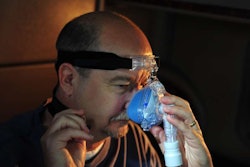
By funding the use of cleaner trucks, buses, trains and other heavy equipment Janet McCabe, the EPA’s acting assistant administrator for the office of air and radiation, says the EPA is making a visible difference in communities.
“The report on DERA’s impact offers striking evidence that this program is succeeding in providing Americans with cleaner air where they live and work while also cutting the pollution that fuels climate change,” she says.
The EPA says diesel exhaust significantly contributes to the formation of dangerous soot and smog and is likely to increase the risk of cancer. The funding from the program has helped clean up approximately 335,200 tons of nitrogen oxides (NOx) and 14,700 tons of particulate matter (PM), which are linked to a range of respiratory ailments and premature death. The program has also saved 450 million gallons of fuel and prevented 4.8 million tons of carbon dioxide (CO2) emissions – equivalent to the annual CO2 emissions from more than 900,000 cars. EPA estimates that clean diesel funding generates up to $13 of public health benefit for every $1 spent on diesel projects.
According the EPA, there are still 10.3 million diesel engines built before 2008 on the road. While some of these will be retired over time, the EPA says many will remain in use for the next 20 years.
DERA grants, which has seen 642 grants funded with $570 million, have replaced 73,000 vehicles or funded legacy engines retrofits or replacements. Priority is given to fleets in regions with disproportionate amounts of diesel pollution, such as those near ports and rail yards.
The report claims up to $12.6 billion has been monetized in health benefits and prevented up to 1,700 fewer premature deaths.










